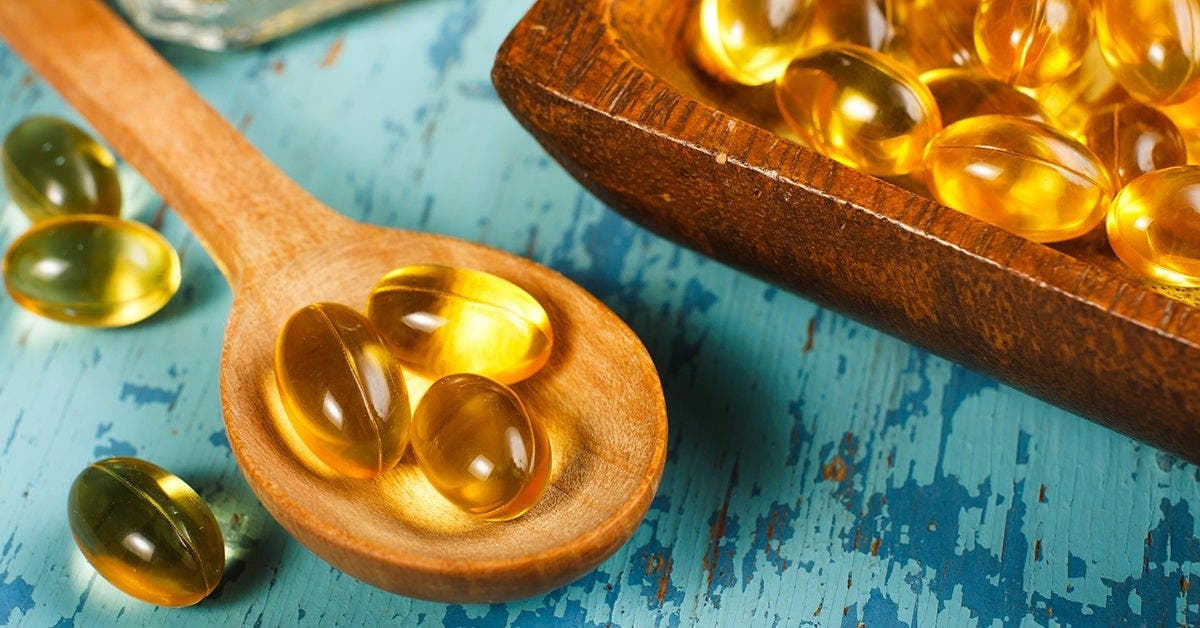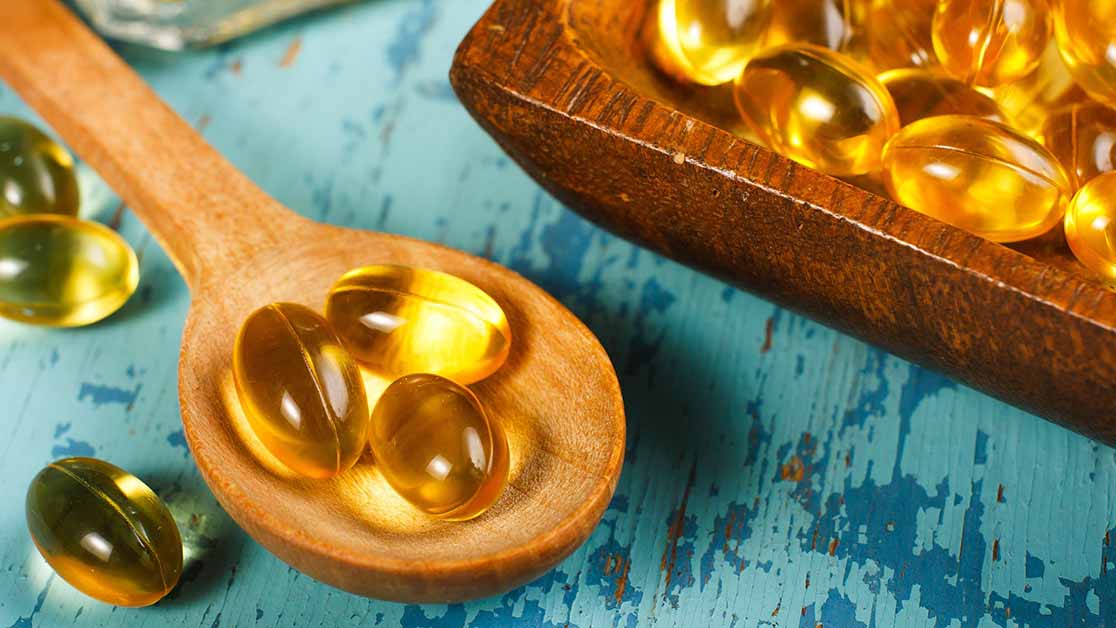Here’s what we know about COVID-19 and vitamin D


As researchers race to gain an understanding of the novel coronavirus that causes COVID-19, a growing number of studies are investigating the potential role of nutrition in how the disease plays out. Vitamin D recently became the subject of international attention when a published study observed a broad correlation between the average vitamin D level of a given population and that population’s COVID-19 outcomes—sparking discussion that lower vitamin D status may be associated with critical cases of COVID.
Although the research is considered preliminary (more on that below) and doesn’t prove that vitamin D affects COVID-19 outcomes, the news may seem worrisome to many. Before the pandemic hit, upwards of 40% of Americans were lacking in vitamin D, according to a 2018 paper published in The British Journal of Nutrition. Now, with plenty of us experiencing changes in our dietary patterns and lifestyle habits due to stay-at-home measures, getting enough of this nutrient—which plays a role in everything from bone health to our immune systems—might seem more challenging than ever.
Rest assured: Some simple steps can help provide the vitamin D you need to support your overall health. Here, researchers and other experts explain vitamin D’s role in immune responses and health, how much you need, and some practical ways to hit your recommended target.
Vitamin D and your immune system
No question: Vitamin D is one of the key nutrients we need for staying healthy. A 2011 study review published in the Journal of Investigative Medicine found that the nutrient plays an important role in immune operations, helping the body respond to outside viruses and infections. On the flip side of that coin, the same review found that vitamin D deficiency is associated with increased susceptibility to infections. Vitamin D also aids cell growth and helps lower inflammation, according to the National Institutes of Health (NIH).
Vitamin D is just one of the many nutrients vital for a healthy immune system, which include vitamins A, C, E, B6, and B12, plus folic acid, iron, copper, selenium, and zinc.
The possible link between COVID-19 and vitamin D
Here’s the story behind the headlines you may have seen: A team led by Cristian Ilie, a principal research scientist for NORC at the University of Chicago, recently published a study that raised the question of a possible relationship between lowered vitamin D status and the severity of COVID-19 symptoms, as well as deaths.
To conduct the study, which was published in the journal Aging Clinical and Experimental Research, the team analyzed data on average levels of vitamin D among populations of different European nations. Then, they compared each national average with that country’s number of COVD-19 cases and COVID-19 deaths per million people (as of April 2020). The trend they observed: The higher a country’s average level of vitamin D, the fewer cases of COVID-19 and deaths from COVID-19 were reported.
Speaking with WW, IIie says this study builds on earlier findings suggesting that vitamin D may protect against acute respiratory infections. Nevertheless, he cautions, his research concerning COVID-19 and vitamin D is preliminary and has considerable limitations—such as the lack of universal testing protocols for COVID-19.
It’s also important to note that observational studies like Ilie’s are not designed to figure out cause and effect. For the COVID-19 cases reported in his study, it’s possible that factors that commonly occur with low levels of vitamin D played a role. For example, many of the nations with lower average vitamin D levels are also those with large elderly populations—and age might have been a factor.
Researchers worldwide are investigating many factors that could potentially impact COVID-19 infection rates, symptoms, and complications. It’s far too soon to draw definitive conclusions about vitamin D.
Vitamin D in the age of social distancing
Since vitamin D is still important to health, it’s worth discussing how stay-at-home orders may be affecting your status. If you’ve been hunkering down indoors more than usual lately, it might pay to step outside more often. Skin produces vitamin D with exposure to the sun's UV rays, and you can’t get that boost by sitting behind glass windows, says Shilpi Khetarpal, MD, a dermatologist with the Cleveland Clinic.
Fifteen to 30 minutes of direct sun exposure on areas such as the arms, legs, and torso a few days a week generally is enough to produce adequate vitamin D levels for adults, Khetarpal explains. People with fair skin can aim for the shorter end of that bracket, while the 30-minute end is often optimal for people with darker skin, as well as older adults in general. With age, skin loses some ability to synthesize vitamin D from the sun. And melanin responsible for skin’s natural pigmentation decreases the amount of vitamin D produced from UV rays within any given time period, Khetarpal says.
You might be wondering, “Will my skin produce vitamin D if I’m wearing a broad-spectrum sunscreen?” In general, yes, Khetarpal says, echoing a small 2019 study published in the British Journal of Dermatology. In that research, vacationers in the Canary Islands who applied adequate sunscreen to prevent sunburn still saw increases in blood levels of vitamin D after catching some rays. Given that unprotected sun exposure raises the risk of skin cancer, Khetarpal recommends applying sunscreen to any exposed skin 30 minutes before heading outside, reapplying every two hours during extended outdoor adventures.
Vitamin D in our diet: How much do we need?
First, the big numbers: The recommended dietary allowance of vitamin D in adults under 70 years old is 600 International Units (IU) per day; for those over 70, it’s 800 IU per day.
Certain people may need more than those amounts, however. For example, those who have conditions that make it harder for the gut to properly absorb dietary fat—such as inflammatory bowel disease—may be at risk for deficiency unless they take a dietary supplement, according to the NIH, as vitamin D requires dietary fat for absorption by the body. In addition, people with larger body weights may need larger-than-normal intakes of vitamin D to maintain healthy circulating levels. In such instances, a doctor can advise on how much vitamin D might be best.
How to eat your way to more vitamin D
Only a small number of foods naturally contain vitamin D, and many Americans don’t get enough of the nutrient on their plates. If you want to focus on bringing more vitamin D into your diet, think eggs, fatty fish, and fortified products, says Matthew Goldman, MD, a family medicine physician with the Cleveland Clinic.
Foods containing vitamin D include:
- Cod liver oil (1 Tbsp): 1,360 IU
- Salmon (3 oz): 570 IU
- D-fortified milk (1 cup): 120 IU
- Egg yolk: 44 IU
- Canned tuna (3 oz): 40 IU
Source: National Institutes of Health Office of Dietary Supplements
If your diet tends to be low in vitamin D, taking a supplement can help ensure you’re getting enough, says Jaclyn London, MS, RD, CDN, WW’s head of nutrition and wellness. First, chat with your doctor to make sure a supplement makes sense in your overall wellness plan. Once you’re good to go on that front, look for a brand with a third-party seal, such as “USP Verified,” to indicate that the brand has been independently tested for accurate labeling, London says. Unlike drugs, dietary supplements are not regulated by the Food and Drug Administration.
It’s possible to have too much of a good thing when it comes to long-term vitamin D supplementation, adds Goldman, so be sure to stick with your recommended daily amount. The tolerable upper limit for adults is about 4,000 IU per day, according to guidelines set by the National Academies of Sciences, Engineering, and Medicine.
Vitamin D and your health
As the global conversation around COVID-19 continues to evolve, vitamin D remains important for overall health. Making sure you're getting enough of this nutrient through healthy sunlight exposure and diet can help you on your wellness journey—now and in the future.
--
Jessica DiGiacinto is an associate editor at WW. A health and wellness writer based in of New York, she’s contributed to Popsugar, Bulletproof 360, and Galvanized Media, among other outlets.
